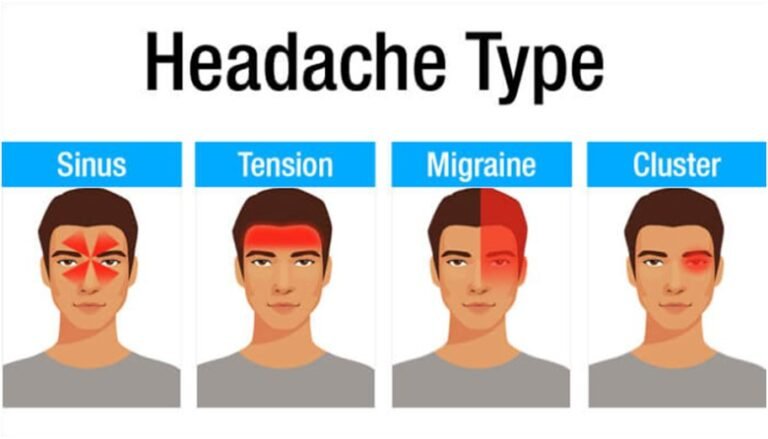
Headaches and Physiotherapy: A Natural Approach to Relief
Headaches are one of the most common health complaints, affecting millions of people worldwide. They can range from mild discomfort to debilitating pain, interfering with daily activities, work, and quality of life. While many people turn to medication for relief, physiotherapy offers a natural, effective approach to managing and even preventing headaches. This blog explores how physiotherapy can help relieve headaches and improve overall well-being.
Understanding Headaches: Types and Causes
Before diving into how physiotherapy can help, it’s important to understand the different types of headaches and their causes. Headaches are broadly categorized into two types: primary and secondary headaches.
•Primary Headaches: These are not caused by any underlying medical condition. They include:
1.Tension Headaches: The most common type, often described as a constant, dull ache on both sides of the head. They are usually caused by muscle tension, stress, poor posture, or fatigue.
2.Migraines: Characterized by intense, throbbing pain, often on one side of the head. Migraines may also cause nausea, vomiting, and sensitivity to light and sound. Triggers include hormonal changes, certain foods, stress, or sensory stimuli.
3.Cluster Headaches: Rare but extremely painful headaches that occur in clusters, usually on one side of the head, often around the eye. They can last weeks or months and then disappear for long periods.
•Secondary Headaches: These result from an underlying condition such as a neck injury, sinus infection, or high blood pressure. Treating the underlying cause is essential to relieve these headaches.

How Physiotherapy Can Help with Headaches
Physiotherapy addresses headaches, particularly those related to musculoskeletal issues like tension headaches, cervicogenic headaches, and headaches resulting from poor posture. Here’s how physiotherapy can provide relief:
1. Postural Correction and Ergonomic Advice: Poor posture, especially during long hours at a desk or looking down at a screen, can strain the neck muscles and contribute to tension headaches. Physiotherapists can assess your posture and provide ergonomic advice to minimize strain.

2. Manual Therapy Techniques: Techniques such as soft tissue massage, myofascial release, joint mobilization, and trigger point therapy can help relax tight muscles, improve circulation, and reduce pain. These hands-on techniques are particularly effective for cervicogenic headaches, which originate from the neck.

3. Exercise Therapy: Specific exercises strengthen the muscles of the neck, shoulders, and upper back, improving posture and reducing the risk of headaches. Stretching exercises can also relieve muscle tension.
4. Dry Needling and Acupuncture: Dry needling involves inserting fine needles into specific trigger points within the muscles to relieve tension and reduce pain. Acupuncture, an ancient Chinese medicine technique, is also used to balance the body’s energy flow and relieve headache symptoms. These techniques can be effective for certain types of headaches, particularly tension headaches.
5. Pain Relief Modalities: Physiotherapy offers various pain relief modalities, such as ultrasound, TENS (Transcutaneous Electrical Nerve Stimulation), and heat or cold therapy.
When to See a Physiotherapist for Headaches
If you experience frequent or severe headaches that interfere with your daily life, consulting a physiotherapist is a good idea. Here are some signs that physiotherapy might help:
1. Your headaches are associated with neck pain, stiffness, or tension.
2. You experience headaches after prolonged sitting or working at a computer.
3. You have poor posture or a history of neck or shoulder injuries.
4. Medications are not providing adequate relief, or you prefer a natural approach.
A physiotherapist will assess your condition, identify contributing factors, and develop a personalized treatment plan to address the root cause of your headaches.
Physiotherapy offers a holistic, drug-free approach to managing headaches by addressing underlying musculoskeletal issues, promoting relaxation, and improving posture. If you’re struggling with headaches and seeking a natural solution, consider consulting a Physiotherapist. We are open to book your online appointment.
